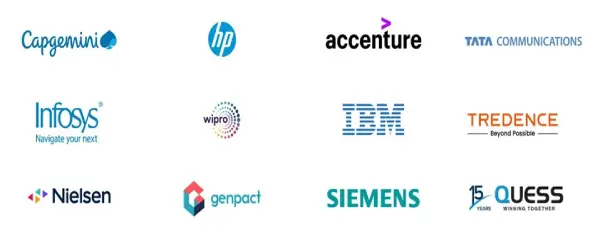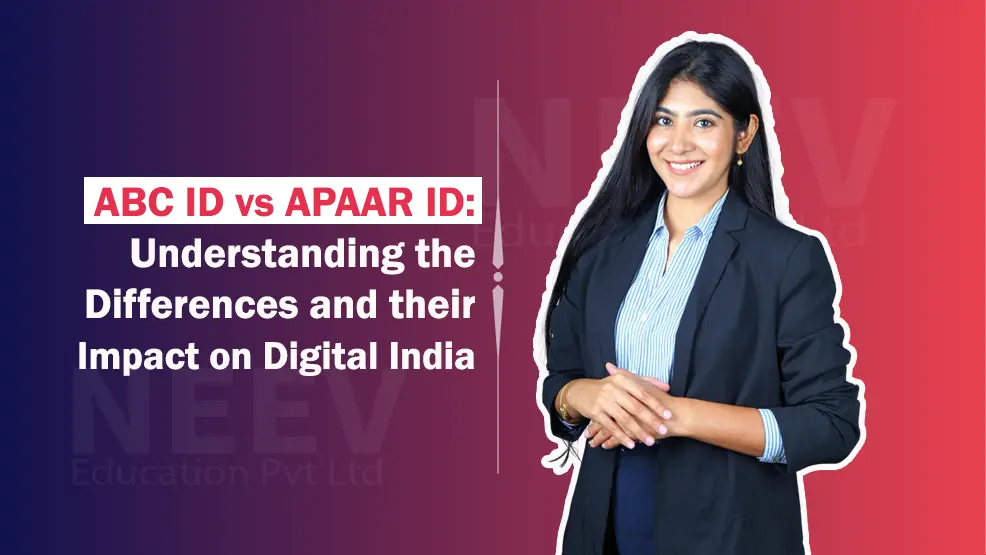




















An Online and Distance BA in Sociology is an undergraduate degree program that requires 3 years to complete. It is a specially designed professional degree program at the undergraduate level that offers knowledge and skills related to human society, social structures and social behaviour delivered through a completely flexible and accessible education process. An Online and Distance BA in Sociology offers a flexible education experience among students by allowing them to study at their own paces, supported by a 24/7 available digital learning management system.
The program is an industry-oriented curriculum that provides comprehensive knowledge and skills of sociological theories, concepts and research methods, primarily focused on addressing several social issues in society. The program utilises a distance education mode of delivery that includes accessibility to digital learning materials, online assessments and recorded lectures. Completing an Online and Distance BA in Sociology from a UGC-NAAC-affiliated college allows students to gain valuable skills and a credible degree.

Colleges
Courses
Students
Experience



An Online and Distance BA in Sociology is a flexible and affordable education program that allows students to study at their paces and schedule through a cost-effective learning structure. An Online and Distance BA in Sociology is a versatile degree that provides a strong foundation of social structures and social elements for various career opportunities and further education programs. The program offers critical thinking, research skills, communication and analytical skills among students.
| Course Name | Online BA in Sociology |
|---|---|
| Course Duration | 3 Years |
| Course Level | Under Graduate |
| Mode of Education | Online |
| Eligibility Criteria | Passed 10+2 from a recognized board |
| Admission Process | Admission into this programme generally involves online application |
| Semester Wise Subjects Details |
Semester I
Semester II
Semester III
Semester IV
Semester V
Semester VI
|
| Online BA in Sociology Programme Fee Range | ₹ 15,000 - ₹ 1,20,000 |
| Starting Salary Range | ₹ 4.2 LPA - ₹ 7.5 LPA |

Students should have completed their 10+2 or equivalent education course from a recognised education board in India. Students are required to have a minimum of 40 to 45% marks during the 12th board examination. Some specific Universities also require students to provide proof of English language proficiency; hence, it is suggested to analyse and fulfil the specific eligibility criteria of selected colleges for successful admission.

An entrance exam can be an important part of the admission process for a regular BA in sociology in several institutions. However, an entrance exam is not typically required for admission to an online BA in sociology in India. Although some specific colleges may conduct their university-specific entrance exam, or consider the scores of a national or state-level exam, like CUET.

After completing an Online and Distance BA in Sociology, individuals can pursue careers in diverse fields such as human resource management, policy analysis, policy development, social work and research, including NGOs, private companies and government agencies. An individual can pursue jobs like a social worker, a counsellor, a community Development officer, a market researcher, a social researcher, a policy analyst, an HR manager, a Public Relations manager, a community Development Officer and more.


Graduates with an Online and Distance BA in Sociology can earn from ₹ 2 to 8 lakh or even higher per year, depending on their skills and the type of job. The salary potential for Online and Distance BA graduates increases in the particular field. Individuals can also pursue entrepreneurship and earn a higher income depending on the nature of the business.
| Job Profile | Job Description (Responsibility) | Average Salary (INR) |
|---|---|---|
| Social Worker | Assist individuals and communities in addressing social issues, welfare needs, and personal challenges. | ₹3,00,000 – ₹5,00,000 |
| Human Resources Executive | Manage recruitment, employee relations, and workplace culture in organizations. | ₹3,50,000 – ₹6,00,000 |
| Community Development Officer | Plan and implement programs to improve community welfare, education, and infrastructure | ₹3,00,000 – ₹5,50,000 |
| Market Research Analyst | Study market conditions, analyze consumer trends, and prepare reports for business decisions. | ₹4,00,000 – ₹6,50,000 |
| Policy Analyst | Research, analyze, and recommend public or corporate policies for social and economic impact. | ₹4,50,000 – ₹7,00,000 |


| Top Recruiters |
|---|
| TISS |
| Infosys |
| Wipro |
| Accenture |
| TCS |
| Oxfam India |
| UNICEF India |
| HelpAge India |
| Teach for India |

The admission process of an online distance BA in sociology includes several steps such as an online registration process, accessing and completing an application form available on the university's website, providing personal details, submitting documents, paying the application fee, waiting for confirmation, upon confirmation, paying the program fee and starting learning with credentials provided.
Neev helps students seeking a convenient education experience through online education programs across India. Neev provides complete assistance to online students throughout the admission and enrollment process in a specific education program. It provides career counselling among students and helps them to select a suitable career path, then provides admission assistance by streamlining the steps of the admission process and notifying them about deadlines and the closing window to ensure online registration in the preferred program successfully.
Login to the admission portal by using your credentials shared on registered email id or you can directly login by entering an OTP received on the registered mobile number.
The next step is filling out all the details in the application form such as personal details, educational qualification and other details as required by the University.
Upload all the scanned documents, including high school, intermediate, and Graduation Mark sheets along with the Aadhar card and ABC (Academic Bank Credits) ID.
To finish the application, submit the academic fees online through debit, credit card, Net banking, UPI or you may also opt for a finance option. Interest-free Loan options are also available in which you can pay your fees in easy EMIs.
The University will then verify your documents and send you a confirmation mail regarding your admission, along with the login credentials to access your learning management system (LMS).


The colleges of an online distance BA in Sociology in India offer placement support services among online graduates in the form of Direct Access to the career service cell and placement opportunities. The colleges offer career-specific skill development opportunities through virtual workshops and internship projects. The placements of online graduates in a distance BA course are done through virtual job fairs, networking events, direct interactions, webinars and more.
| University | Average Package (INR) |
|---|---|
| Sikkim Manipal University | ₹4.5 – ₹8 LPA |
| Amity University | ₹4 – ₹8 LPA |
| Lovely Professional University | ₹4 - ₹6 LPA |
| Integral University | ₹3 – ₹6 LPA |



The Automated Permanent Academic Account Registry (APAAR) ID is a unique student identification system designed to track a student’s educational journey from school to higher education.
| Feature | ABC ID | APAAR ID |
|---|---|---|
| Purpose | Tracks academic credits | Tracks students' entire academic journey |
| Who Can Get It? | College/university students | School/college/University students |
| Key Benefit | Helps in credit transfer & multiple entry-exit | Provides a lifelong academic record along with credit transfer |
| Linked to | UGC & Higher Education | School & College Education |
| Integration | NEP 2020, Higher Education | School Education, Government Schemes |
While the ABC ID allows higher education students to transfer credits and also allows flexible learning, an APAAR ID is a universal student identifier beyond school. These IDs are important for digital education in specific respects.
The ABC ID applies to students going for higher studies, whereby they would need flexibility in completing courses. On the other hand, the APAAR ID is about creating a continuous academic record of primary, secondary, and higher education details for easy tracking of students' academic journeys by the authorities so that they can be assisted timely when needed.
In addition, the APAAR ID serves the purpose of efficiency in resource allocation and targeted policies for educational programs of the government. In contrast, ABC ID will allow students to take interdisciplinary studies and credit-based learning freely.
The introduction of ABC ID and APAAR ID forms the fulcrum of the digital transformation of education in India. Their impact stretches across multiple domains.
These steps have simplified student access to their digital academic records.
ABC ID has been renamed as APAAR ID now, reflecting its updated identity and expanded scope. The introduction of ABC ID and APAAR ID is a game-changer in the education system of India, where students from different levels have the facility of transparency, and have ensured availability and at the same time are not restricted by the immediate time. The one-time introduction is India's Digital India movement and the National Education Policy (NEP) 2020 which is in unison with the vision, which envisages the holistic academic system of the technology-driven environment.
College students now have the leverage to independently seek flexibility, as well as the mechanisms required for multiple entry-exit, and lifelong learning via ABC ID. This paves the way for a smoother and faster progression in the pursuit of their desired education paths. At the same time, APAAR ID functions as a lifelong student identity that reduces the employment of government employees for student tracking, simplification, and also the task of establishing and maintaining an integrated academic record from school to college.
All in all, the two branding strategies of educational digitalization do the magic of reducing paper consumption, minimizing education cheating, and including all the individuals in the digital platform, where educational authorities may review their academic certificates quickly. The learning institutions have brought about a new era in their record-keeping functions and this has helped them to be more accountable to their audiences and also allowed them to be in a better position to make timely adjustments in their educational strategies based on the developments in the field of academics.
When it becomes inevitable for India to become a digital society, then students, parents, and educators have to walk hand-in-hand with the latest technologies that come with it. Not only this but also ABC ID and APAAR ID can enable a paperless induction of students, it can ensure that every educational institution can become digital and can get assistance round the clock. This digital transformation works by schools using digital cards and other digital tools with technological things such as battery life and wireless error correction. All this adds up to the global environment of the internet. India is creating a new digital economy. Get ready to experience new and better AI, enhanced global recognition, and increased data security through blockchain.
More people will become involved in educational technology. Recognize and identify with digital identity and digital citizenship, as well as the capability to borrow the same level of digital knowledge, and the ability to integrate the digital into their education systems.
Yes, ABC ID is highly advisable for all the students. It is very important in the matter of tracing academic credit, and facilitating credit transfer, as well as the better way to develop an academic record system that is student-centric.
No APAAR ID will not supersede ABC ID. APAAR ID has the purpose of differentiating the individual student but ABC ID is needed for tracking and transfer of academic credits in higher education institutions, so it is very important for students pursuing higher studies.
Suppose you lost your ABC ID or APAAR ID. In that case, you will be able to recover it by visiting the respective portals and by Aadhaar verification attached with a record of academics to reclaim it while keeping the credentials intact.
Yes, APAAR ID is available for each student from school to enable the academic performance identification of students.
Yes, ABC ID has been renamed as APAAR ID, reflecting its updated identity and expanded scope.
Currently, these IDs are intended only for use in India. However, it is dependent on future developments that could allow students to use these IDs for credit transfer or higher education opportunities internationally.
[post_image] => ABC-ID-vs-APAAR-ID.webp [post_display_order] => 0 [post_type] => 0 [status] => 2 [feature] => 0 [date_added] => 2025-04-03 18:53:35 [date_updated] => 2025-08-28 15:55:12 [button_1] => [button_2] => [button_1_url] => [pdf] => [form_text] => [form_btn_text] => [post_authors] => Admin [post_dates] => 03-04-2025 ) -->

Yes, an online sociology degree from a UGC accredited and NAAC-affiliated college is as respected as an in-person degree or a regular sociology degree.
An online distance BA in Sociology includes both statistics and Research projects that allow individuals to apply quantitative and qualitative research methodology.
Yes, an online distance BA in sociology is an interactive online learning format that allows individuals to become part of virtual meetings, online assignments, and discussion forums, i.e., also accessible in recorded form.
Students enrolled in an online distance BA in Sociology should expect a variety of assignments such as research papers, case studies, essays, presentations and projects that will help students to learn and understand about sociological concepts, research methodology and social issues.
Yes, it is possible to complete internship programs or study abroad as a student of an online distance BA in Sociology, as it is an internationally recognised education course and degree.
Best-in-class content by leading faculty and industry leaders in the form of videos, cases and projects, assignments and live sessions